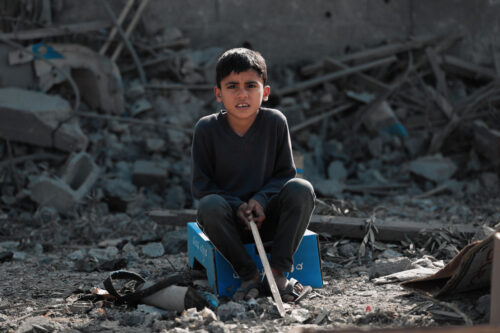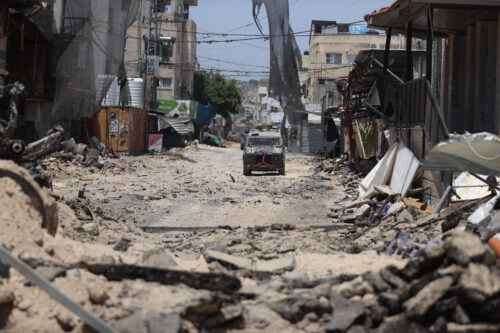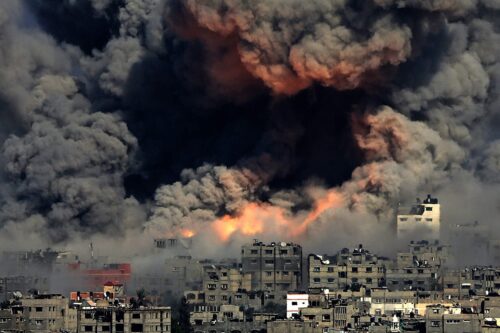The Palestinian refugee camps of Beqaa Valley, Lebanon

The Bekaa Valley is pretty and rural. An important farming
region, close to the border with Syria and with snow-capped mountains in view.
It is also where many displaced people from Syria are currently living, having
fled the war in their country. Some made it to Lebanon legally and some through
illegal means, but they have all fled the same thing and came in search of
safety, security and hope.
Interpal’s All Women’s Delegation visited two small refugee
gatherings in the Bekaa region: Al Aoudi, which translates as ‘the return’ and
Al Farah, which means ‘the pleasant’. Both camps have been established by local
philanthropists who have sought the help of NGOs to provide services and aid
for the displaced families
Just behind Al Aoudi Camp you can see a snow covered
mountain in the distance, and the small shelters arranged neatly into rows house
350 families. The camp is the only officially recognised camp for Syrians in
the area. It has a hospital which serves neighbouring camps as well, and also a
school, a mobile clinic, a bakery, a mosque and a small marketplace. The
residents approach the management of the camp to discuss their needs or
requirements. Each home has a fire extinguisher, water tanks on the roof and
the homes are mostly fortified container units. A generator operates to provide
electricity, but this is often not able to cope with the need.
The small hospital services almost 200 people a day, and
with so many needs it is unable to provide every service required and address
growing needs. Refugee-hood is particularly difficult for women and children,
as often services for them are harder to obtain. Al Aoudi camp has a female
doctor to manage specific women’s health issues, however there are no
ante-natal services available. The women contact a local resident who has been
helping in the camp to inform them that they will need maternal care, and she
then arranges it with the camp management.
The camp is how many refugee camps look, but in reality, no
camp is the same. Camps are communities, they are people struggling with trauma
and insecurity and they are both safe havens and places of danger. For women,
issues of gender based violence, limited employment, keeping families together
and trauma are always present.
Speaking with women in the camp, it is clear how much they
carry on their shoulders. We met an elderly grandmother Fatemeh, who is now a refugee
for the second time. She fled Palestine as a ten year old girl, hoping to
return soon and now into her 70s she has had to run again. Her home in Damascus
was destroyed and the family was no longer safe in Syria- the place that had originally
given her refuge and where she had built a happy life. She said she still
remembered Palestine, and she spoke of being able to return to Syria. Her smile
and warmth were truly beautiful and her tears heart breaking.
Many of the families in the camp fled after a male relative
was arrested and detained. Many women told us of their ongoing trauma and
stress faced by their husbands, and the impact this has had on their families.
The stress of being unable to provide for their families and provide better
futures for their children has also had a deep impact on mothers and fathers,
the concern and pain obvious on their faces. There is no aspect of life that is
easy and whilst there are no bombs, families face uncertain futures and hope is
diminishing.
Fatima literally walked to the border from her city near
Damascus with her young children, whilst her sons trekked over the mountains in
winter to seek refuge in Lebanon. She had given birth to her youngest child,
Rooayam, whilst the hospital was being bombarded and her caesarean was poorly
performed due to this. Rooaya was born into war and has known nothing but
conflict and insecurity during her young life. The camp is her reality. Huda, a Syrian from Yarmouk camp fled when
she was injured in the fighting and after her husband was detained. Her husband
remains extremely traumatised from being detained and tortured and lives with
her son outside the camp, his PTSD making him too unwell to work. Her sister
remains in Al Yarmouk, and told her they were forced to eat rats and cats to
survive. It is almost impossible to comprehend how hard it must be to know your
sister is starving in a place that used to be your home.
Whilst many refugees are registered with UNHCR or UNRWA, and
there are many local NGOs working to provide support, the needs are growing and
funding and capacity is not.
In Al Farah camp, we met Samiya, mother of 3, whose eldest
son dropped out of school due to being displaced and the stress of living in
Lebanon. Her daughters lit up when talking about how much they loved school,
and spoke about their future ambitions, with their mother being highly
encouraging. All the families we spoke with stressed how their hope was in
getting their children educated, but there are huge gaps in services.
Al Farah camp is situated on a small plot of land, the
housing units closely packed together and it houses 45 families. There is
little privacy, however the camp is very community focused and they look out
for each other. One young mother spoke of feeling safe in the camp, but not
outside it. Her and her husband had rented a home in a town previously but had
moved to the camp to avoid being exploited by landlords and to be closer to
family. The young family were originally from Homs, and were forced to flee as
their town was targeted for arbitrary arrests and violence. Her husband told
her he thought the conflict would last a few months, but now 5 years later he
cannot believe how things have happened.
The delegation learned a little
more about the many concerns refugees have, about the ways people are trying to
help them and how immense the need is. They listened to the voices of refugee
women, these families want people to understand what has happened to them and what they face.
Calculate your Zakat
Confused about how to calculate your Zakat? Try our simple-to-use calculator




